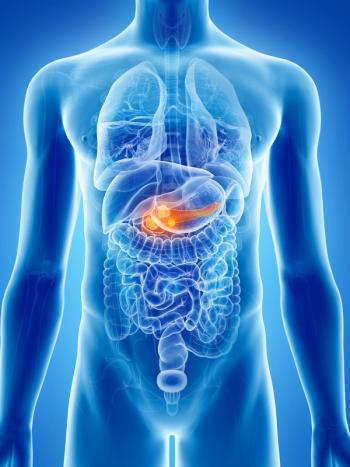
No significant benefits to progression-free survival were noted with the axitinib-plus-octreotide combination for the treatment of patients with advanced G1-2 extra-pancreatic neuroendocrine tumors.

Your AI-Trained Oncology Knowledge Connection!


No significant benefits to progression-free survival were noted with the axitinib-plus-octreotide combination for the treatment of patients with advanced G1-2 extra-pancreatic neuroendocrine tumors.
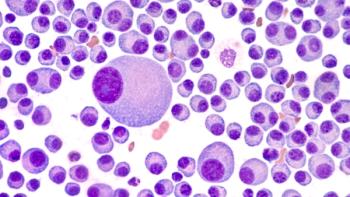
Data published in The Lancet found a favorable tolerability profile for the subcutaneous formulation of bortezomib when compared with previous trials of the combination panobinostat plus dexamethasone and intravenous bortezomib in myeloma.
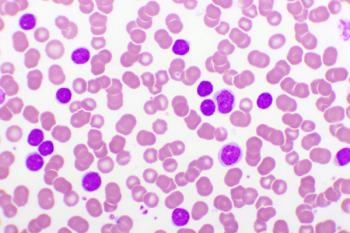
Based on recent study results, investigators recommended TBI plus etoposide for patients older than 4 years of age with high-risk ALL undergoing allogeneic hematopoietic stem cell transplantation.

The latest episode of CancerNetwork®’s podcast examines a review article focusing on spinal metastases and stereotactic body radiation therapy.
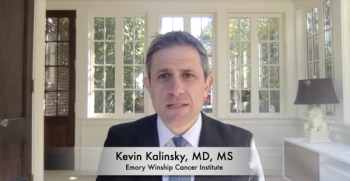
In this trial, investigators launched RxPONDER, in which 5015 patients with a recurrence score between 0 and 25 were randomized to endocrine therapy alone or chemotherapy followed by endocrine therapy.
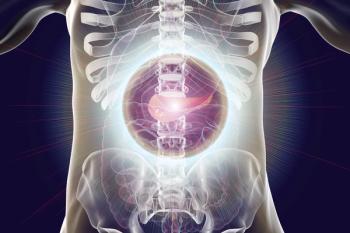
Overall self-reported quality of life in patients with metastatic pancreatic cancer was correlated with their mean daily step count during the first 2 weeks of treatment on SM-88.
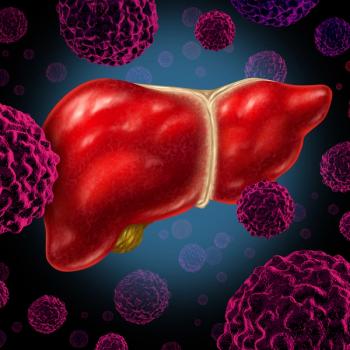
Overall and progression-free survival with second-line pembrolizumab for hepatocellular carcinoma maintained numerical superiority, according to a phase 3 trial.
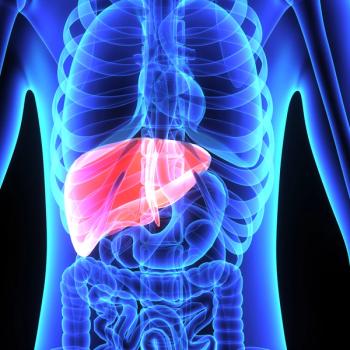
Results of a phase 2 trial presented at the 2021 ASCO Gastrointestinal Cancers Symposium show promise for immunotherapy treatment involving pembrolizumab in patients with HCC receiving no prior systemic therapy.

The phase 1b/2 trial evaluated a single, low-dose infusion of ciltacabtagene autoleucel (cilta-cel; JNJ-68284528) in heavily pretreated patients with relapsed or refractory multiple myeloma.
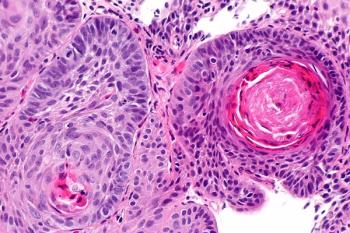
Data presented at the 2021 Gastrointestinal Cancers Symposium shows promise for the combination of camrelizumab plus apatinib for previously treated patients with esophageal squamous cell carcinoma.

Statistically significant improvements in PFS were seen with the multitarget kinase inhibitor anlotinib in Chinese patients with refractory metastatic colorectal cancer, with OS differences noted in certain subgroups.

Lenvatinib monotherapy was an effective first-line therapy for patients with unresectable hepatocellular carcinoma, according to data from a retrospective, real-world analysis.

A leading expert in the field of esophageal cancers discussed his upcoming research on cabozantinib combined with pembrolizumab to treat gastroesophageal adenocarcinoma at the 2021 ASCO Gastrointestinal Cancers Symposium.

When compared with standard capecitabine and bevacizumab therapy, patients with unresectable metastatic colorectal cancer saw an increase in overall and progression-free survival.

Rates of survival increased in step with treatment duration of liposomal irinotecan plus 5-fluorouracil/leucovorin in patients with metastatic pancreatic ductal adenocarcinoma.
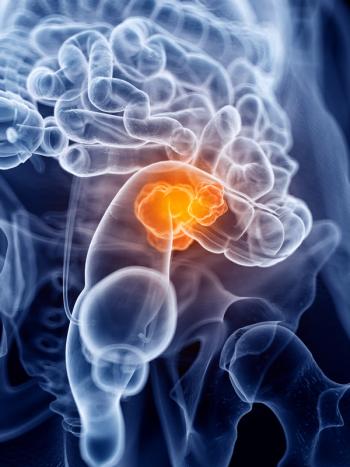
Data presented at the 2021 ASCO Gastrointestinal Cancers Symposium found that health-related quality of life among younger survivors of colorectal cancer is poor and social and functional well-being are also suffering as treatment durations increase.
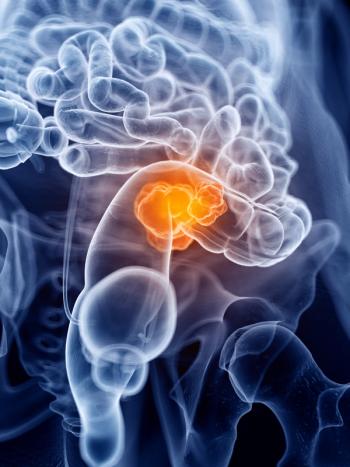
When compared with chemotherapy, patients with microsatellite-instability high/mismatch repair deficient metastatic colorectal cancer saw significant improvement in progression-free survival with the frontline use of pembrolizumab monotherapy, while demonstrating superior safety.

The hospitalist at Memorial Sloan Kettering Cancer Center spoke about the design of a study which evaluated the use of 177Lu-DOTATATE in patients with well-differentiated, high-grade neuroendocrine tumors.
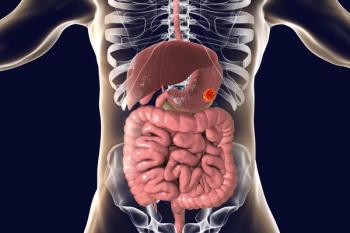
Three abstracts reported at a medical meeting indicate that the combination of pembrolizumab plus lenvatinib is active in various gastrointestinal cancers.

Patient's surgical risk for potentially resectable advanced thoracic esophageal cancer is not negatively impacted by neoadjuvant chemotherapy, study finds.
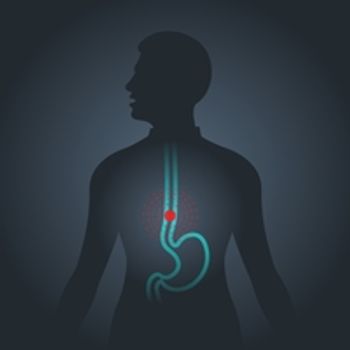
Data presented at the 2021 ASCO Gastrointestinal Cancers Symposium found that health-related quality of life was steady and similar over the course of 18 weeks for patients receiving chemotherapy with or without pembrolizumab for esophageal cancer.

The approval was based on results from the phase 2 DESTINY-Gastric01 trial which evaluated patients with HER2-positive locally advanced or metastatic gastric or GEJ adenocarcinoma who had progressed on at least 2 prior regimens.

Cancertrialsearch.com helped to match patients with gastrointestinal cancers to clinical trials using 7 different criteria, possibly paving the way for patients to find, understand, and enroll in oncology clinical trials.
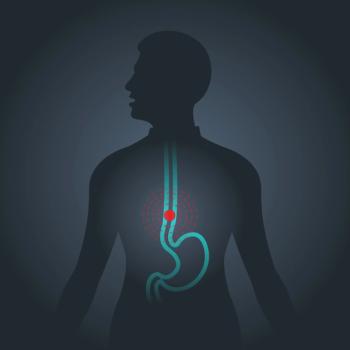
Similar results with nivolumab and a matched placebo are reported with preliminary health-related quality-of-life data from the CheckMate 577 trial.

Stage 4 gastrointestinal stromal tumors were analyzed through a database query, results of which were presented in a poster at a recent medical meeting.

Statistically significant improvements in median progression-free survival were observed in patients with HER2- amplified disease who were treated with pembrolizumab in combination with trastuzumab and cisplatin plus capecitabine compared with those without HER2-amplified disease.

The phase 1b/2 PLANET study demonstrated promising results for patients with these rare gastrointestinal cancers.

The phase 2 study presented at the 2021 American Society of Clinical Oncology (ASCO) Gastrointestinal Cancer Symposium reported a total of 2 responses at the interim analysis, meeting criteria to continue accrual.
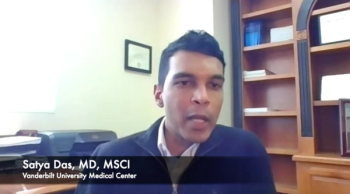
The expert in hematology/oncology spoke about the study which evaluated the use of peptide receptor radionuclide therapy in patients with well-differentiated neuroendocrine tumors.

SWOG S1406 evaluated the use of irinotecan and cetuximab (Erbitux) with or without vemurafenib (Zelboraf) in patients with BRAF V600E-mutated metastatic colorectal cancer who had been previously treated with 1 or 2 regimens.